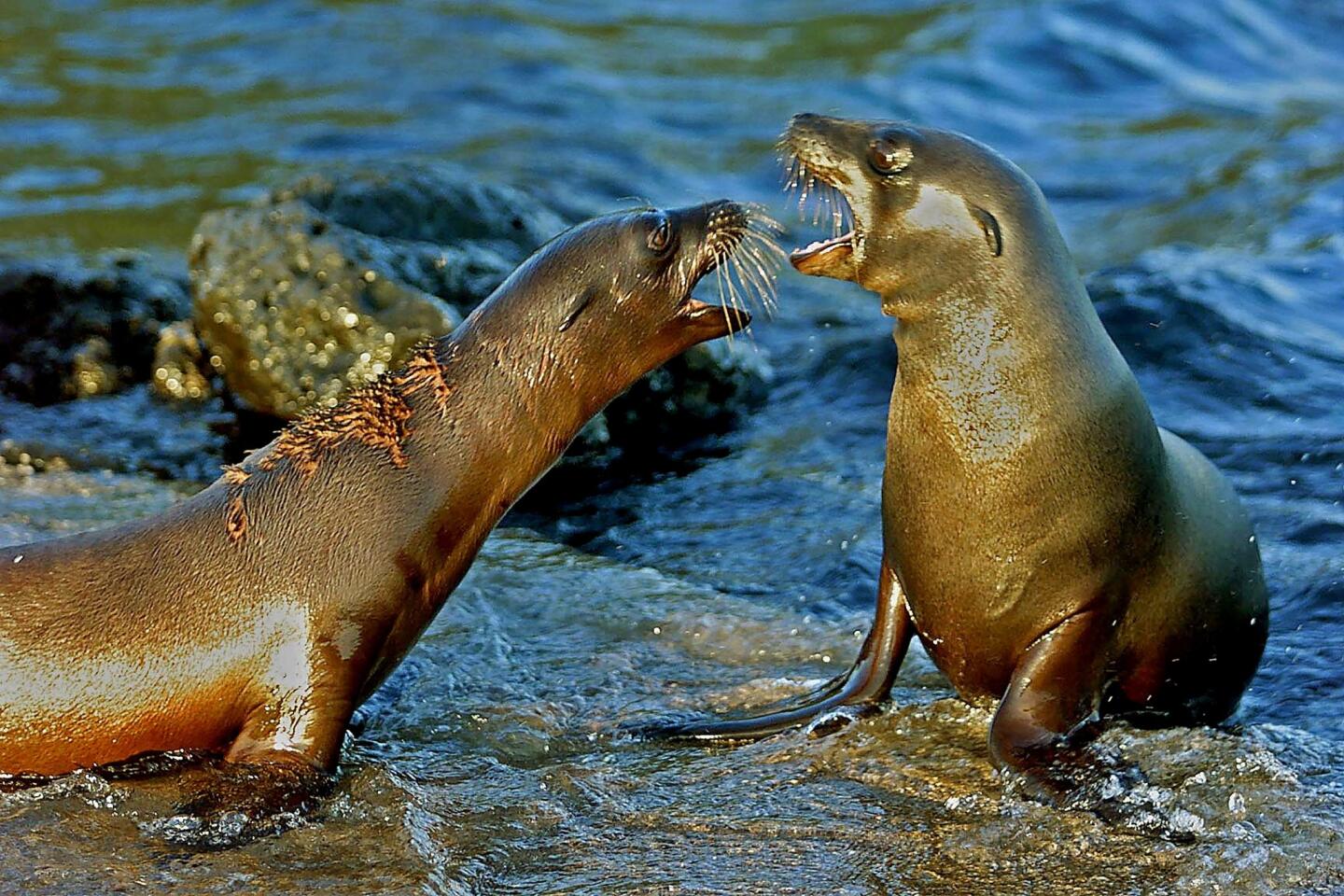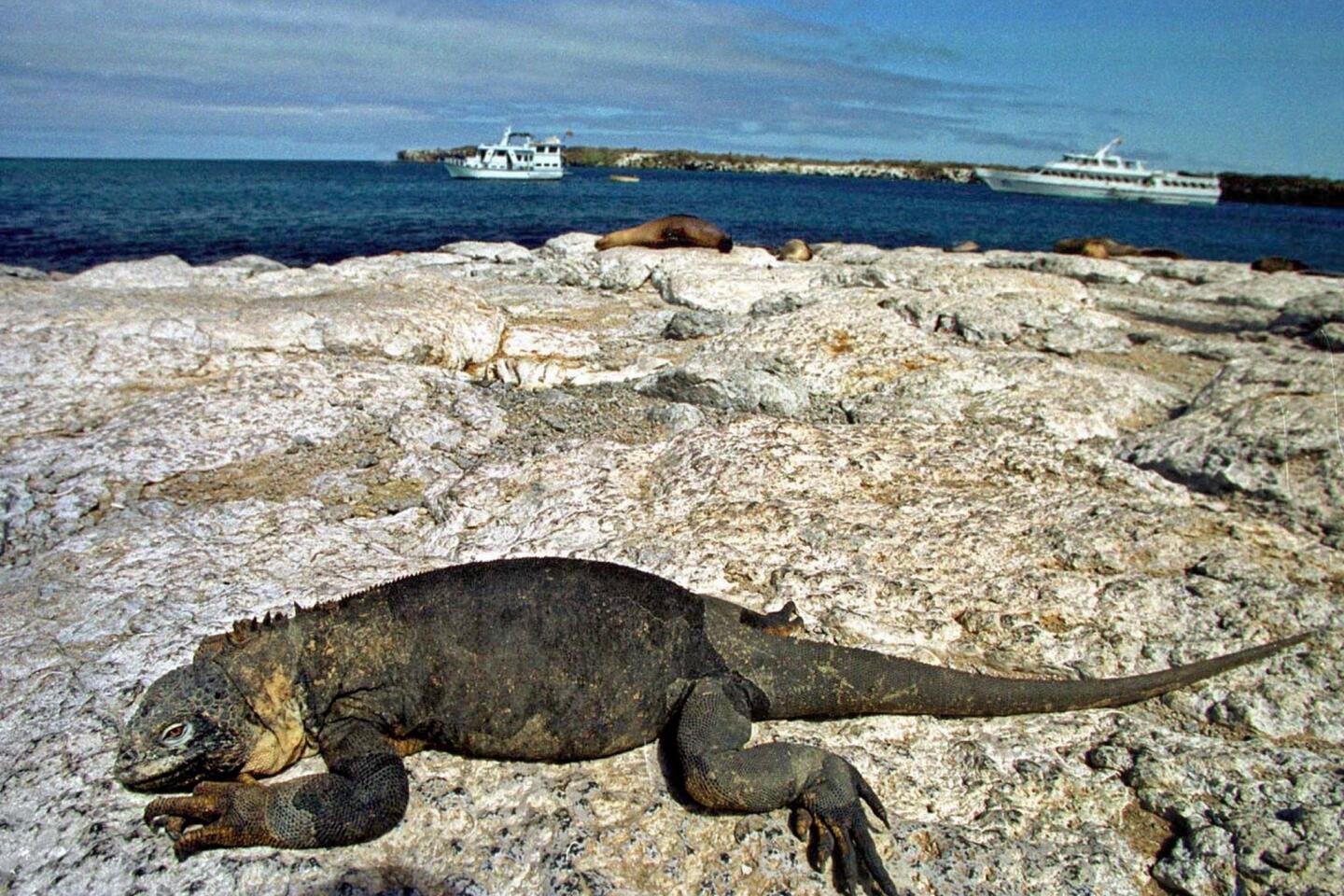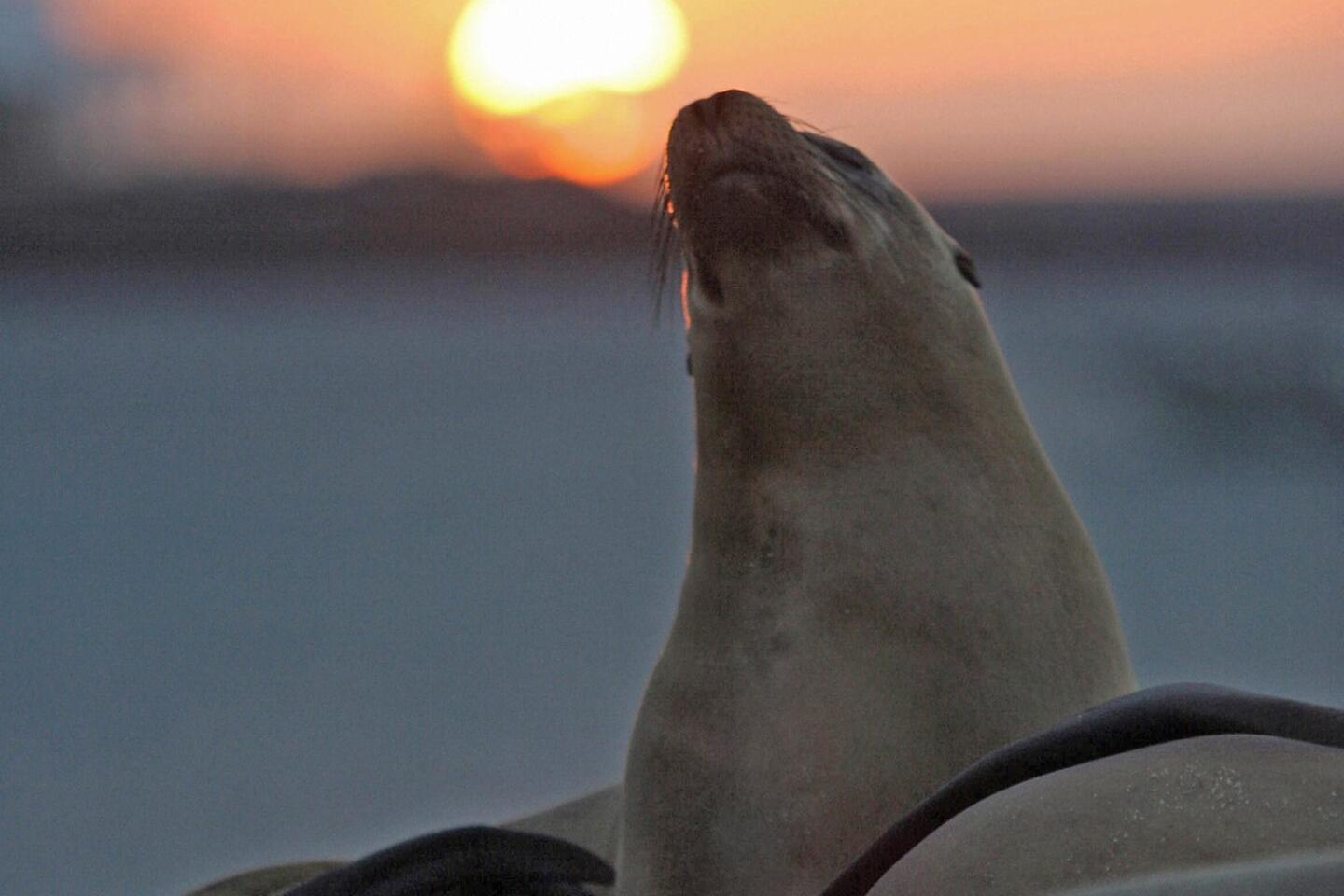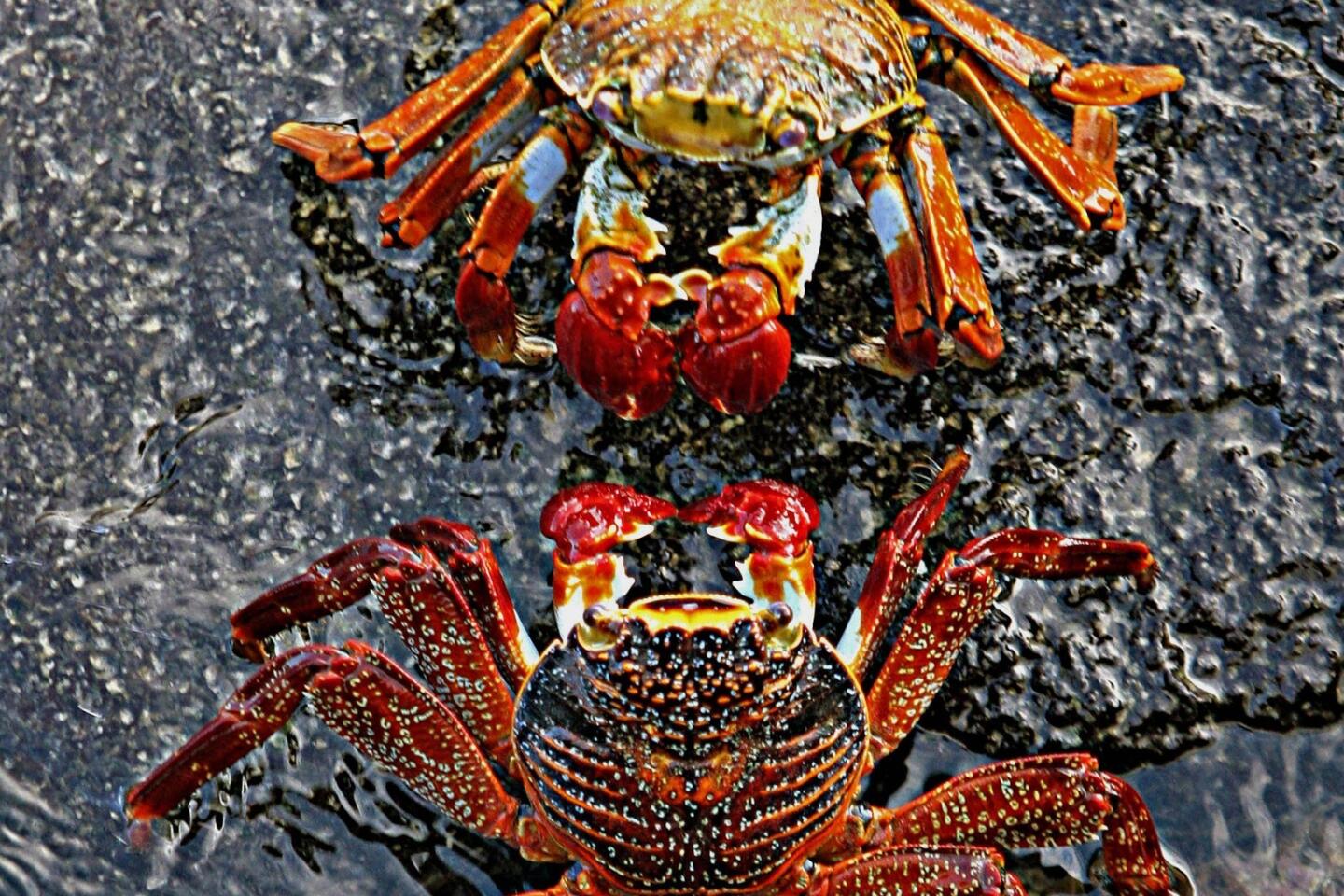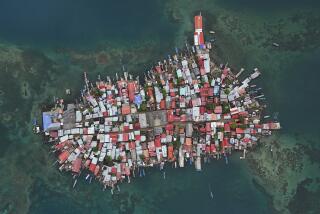Pollution, global warming pose risk to Galápagos Islands
Cavorting in the ocean with sociable seals is a stirring experience, and because of this, I donât know a traveler who doesnât have the Galápagos on his or her bucket list. Even though Charles Darwinâs living laboratory is 600 miles from the nearest land mass, pollution, overfishing and global warming jeopardize these 3,093 square miles of land.
When Darwin arrived on the islands in 1835, they were home to a handful of indigenous people. When I visited two years ago, they were host to 190,000 tourists annually â not all of them ecologically minded and respectful.
The joy of the Galápagos is that the animals have not been threatened by man, so itâs possible to move among them. Human behavior can change all that in a nanosecond. On my boat trip, I was unfortunate enough to be with a group that taunted (and were almost bitten by) seals, rode giant tortoises, poked at iguanas and chased boobies, much to the chagrin of the all-too-polite guides.
Of course, tourism brings in dollars for locals and foreign operators and increases the population through migrant labor. It funds research and conservation efforts, but it also stresses natural resources. Local commercial fishermen face huge demand in feeding the increasing numbers of visitors, residents and the voracious market in Asia, so now some fish populations are in free-fall.
Global warming has also affected the Galápagos. The increase in the ocean temperature has caused reef die-offs, algae blooms and loss of endemic species. What goes on in the water ultimately affects land creatures too, which rely on fish and seaweed as food. And if sea levels rise, much will be lost, including the nesting grounds of the Galápagos penguin. Because of the coastâs fragility, rangers already are building âpenguin condosâ inland.
The Ecuadorean government has imposed new, strict rules for tourism that limit the numbers that can be on each island at one time, which has helped. When you do visit, try to book with a tour operator that has the Smart Voyager stamp of approval, which indicates that it is ecologically responsible.
Info: Ecuador Ministry of Tourism, https://www.ecuador.travel//en/5/10/; Galápagos Conservancy, https://www.galapagos.org; Smart Traveler Galápagos, https://www.bit.ly/1mtEGOi
More to Read
Sign up for The Wild
Weâll help you find the best places to hike, bike and run, as well as the perfect silent spots for meditation and yoga.
You may occasionally receive promotional content from the Los Angeles Times.
